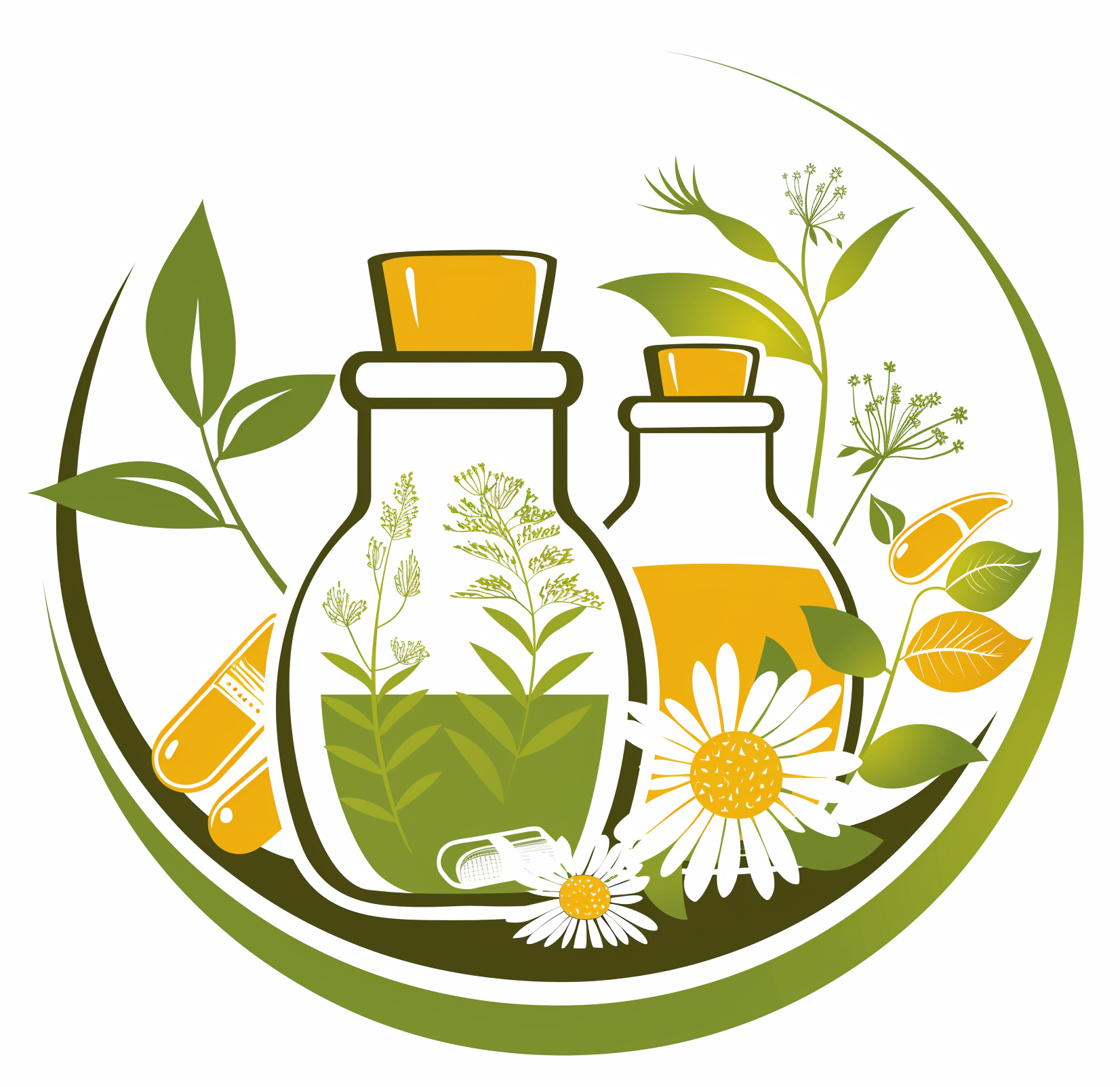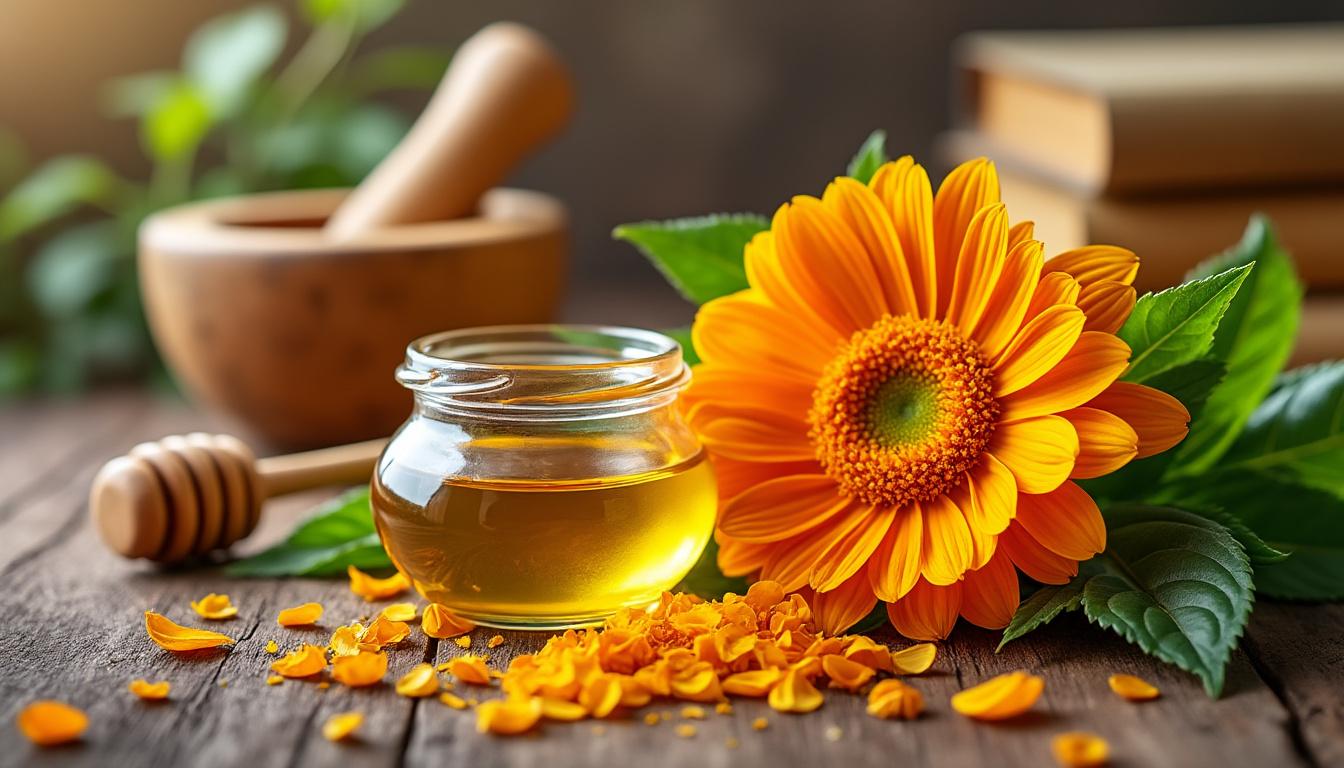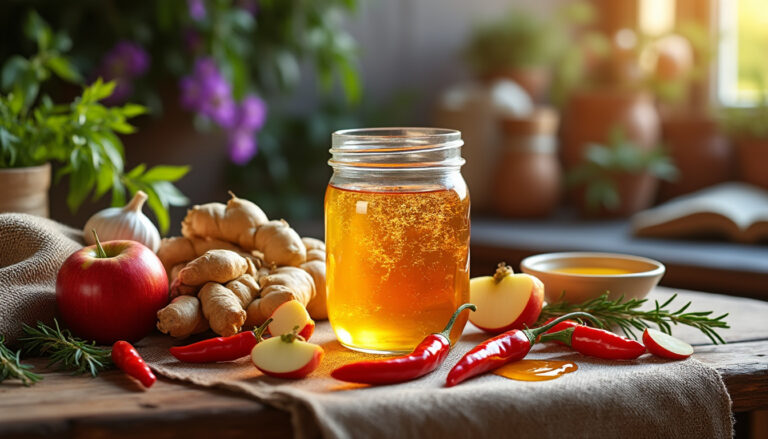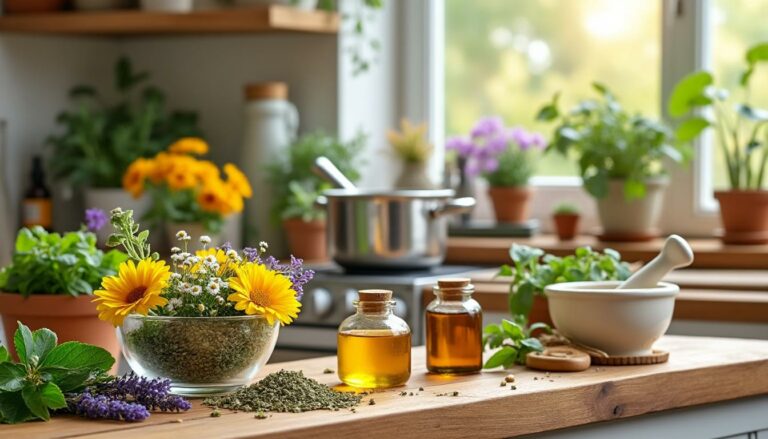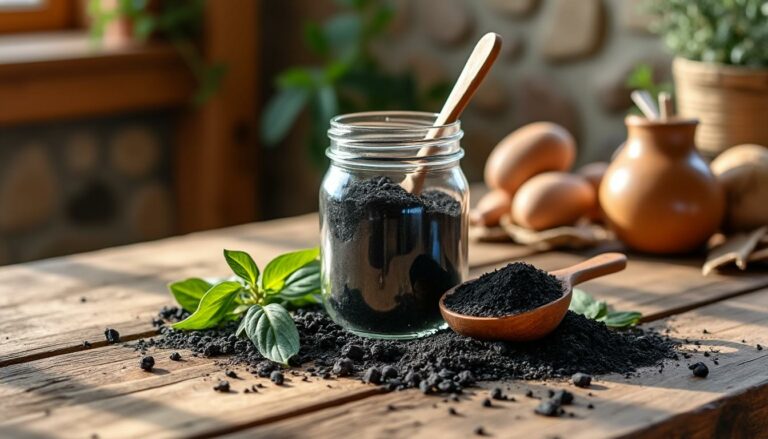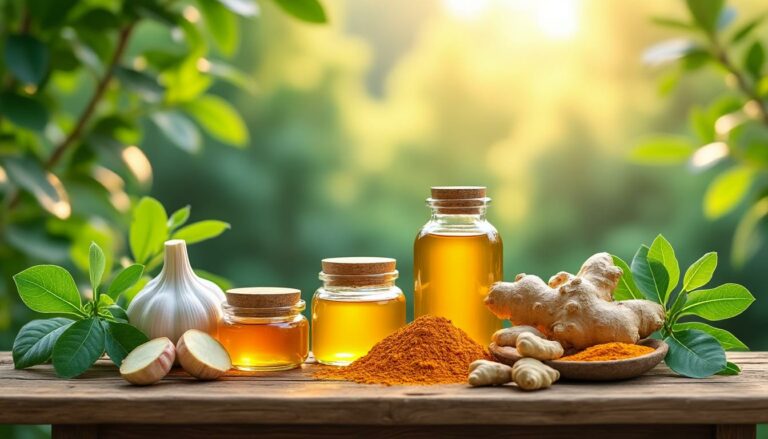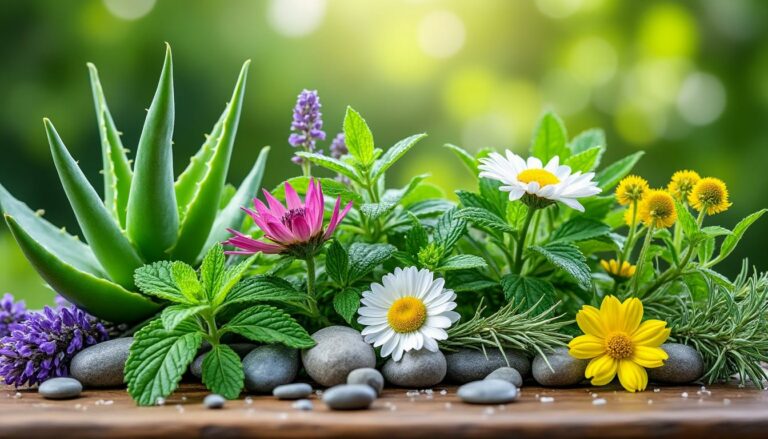What is calendula? Its specific uses in natural remedies
Calendula has long shone in cottage gardens, yet most people still reach for store-bought creams when a scrape, rash, or sore throat appears.
Left untreated, minor irritations can spiral into stubborn infections or chronic inflammation, keeping you from the self-reliant lifestyle you’re building.
Fortunately, this humble marigold offers science-backed flavonoids, soothing resins, and a sunshine-bright spirit that lets you create affordable remedies right in your kitchen or barn workshop.
Calendula identification & cultivation for everyday herbalists
You only need a patch of full sun and average soil to raise a season’s worth of medicinal petals. The species you’re after is Calendula officinalis, not the ornamental Tagetes marigold sold at big-box stores.
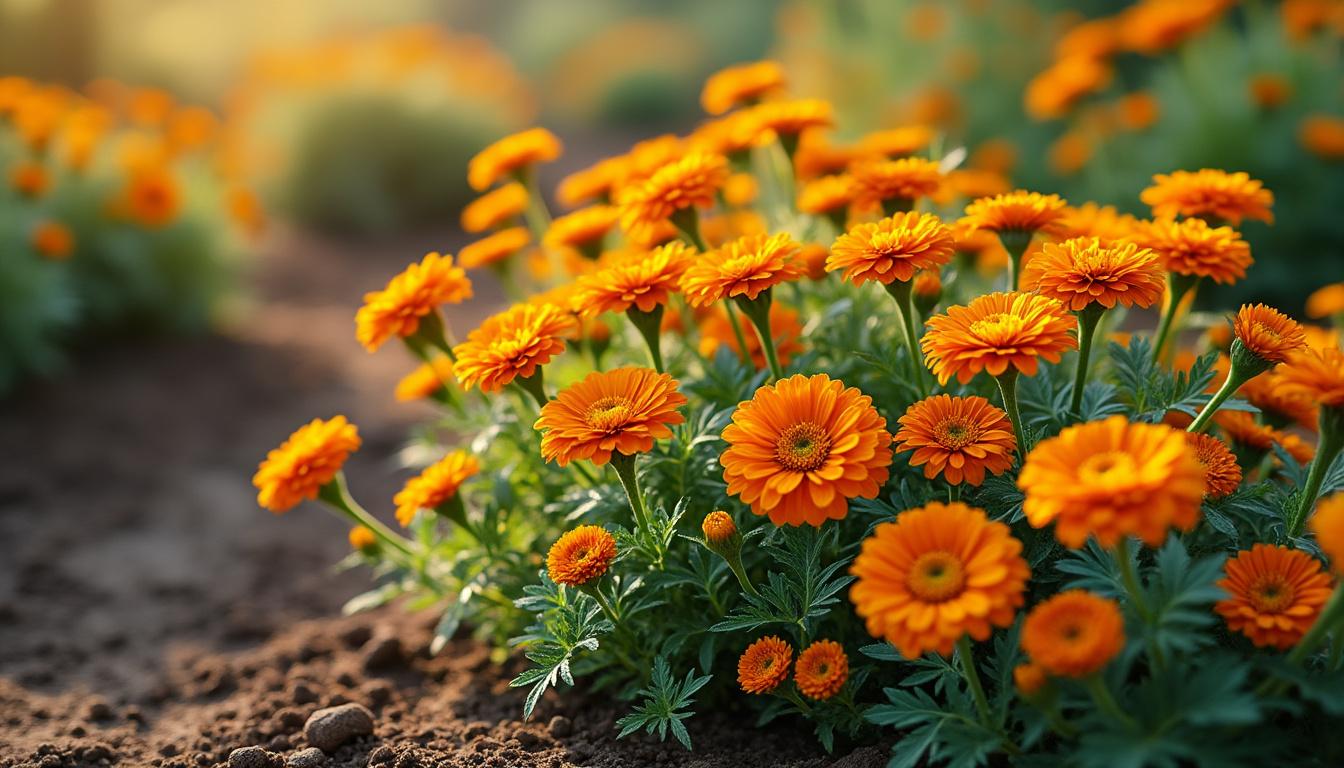
Spotting the right flower
Look for the following traits when seed shopping or wildcrafting:
- 🌼 Petals – bright saffron to golden-orange, arranged in tidy daisy-like layers
- 🍃 Leaves – soft, slightly sticky, with a faint herbal scent
- 🪻 Scent – warm, resinous, almost honey-like when rubbed
- 🐝 Pollinator magnet – butterflies and solitary bees adore it
Planting calendar & quick-care cheat sheet
| 🌱 Task | Best timing (Northern Hemisphere) | Pro tip |
|---|---|---|
| Sow seeds | 2 weeks before last spring frost | Cover lightly; needs light to germinate |
| First harvest of petals | 60 – 70 days after sowing | Pick at midday for highest resin content |
| Deadhead plants | All season | ✂️ More blooms = more medicine |
| Final seed saving | When heads turn brown | Dry seeds in paper bags away from sun |
Need help harvesting safely? Review the wild-foraging checklist on wildcrafting safety tips before you roam.
Skin-healing power: from bug bites to post-surgery scars
Every homestead first-aid kit benefits from a jar of golden salve. Let’s break down why topical applications work so well.
Key actions backed by research
- 🛡️ Anti-inflammatory – reduces redness and swelling faster than plain petroleum jelly
- 🧬 Collagen support – triterpenes stimulate new tissue growth
- 🦠 Antimicrobial – slows Staphylococcus and Candida growth in vitro
- ☀️ Natural SPF – whole-flower cream clocks an estimated SPF 8-9
Simple remedies you can assemble today
| 🚑 Scenario | DIY remedy | Why it helps |
|---|---|---|
| Minor cuts & scrapes | Calendula-honey poultice (learn poultice basics) | Honey fights microbes, petals speed closure |
| Diaper rash | Unscented calendula-zinc cream | Creates gentle barrier without harsh chemicals |
| Cesarean scar care | Calendula ointment twice daily | Study showed faster healing vs. hospital protocol |
| Winter-split hands | Herbal salve with beeswax & coconut oil | Locks moisture and calms inflammation |
Prefer ready-made? Brands like Weleda, Burt’s Bees, and Dr. Bronner’s all offer clean calendula balms, yet whipping up your own keeps cost low and ingredients transparent.
Internal uses: tea, tincture & digestive allies
If you’ve never sipped a sunny cup of calendula, don’t worry — it’s easier than you think.
Benefits proven in studies and folk practice
- 🍵 Gut soother – eases heartburn and ulcer discomfort
- 🦠 Yeast & BV support – ointment matched metronidazole in one 80-patient study
- 💪 Immune modulation – flavonoids encourage pathogen resistance
- 👩⚕️ Cancer-therapy relief – mouth rinse can calm oral mucositis
Quick brew versus long infusion
| ☕ Method | Steep time | When to choose it |
|---|---|---|
| Standard tea | 10 min | Daily digestive tonic |
| Herbal infusion | 4 – 8 hrs | Maximum anti-inflammatory punch |
Learn precise water ratios in this infusion vs. tea guide.
DIY preparations: oils, salves, and compresses you can master
Many natural wellness seekers turn to calendula because you can transform a single jar of petals into half a dozen remedies.
Starter projects for beginners
- 🫙 Solar-infused oil – petals + olive oil on a sunny windowsill for 4 weeks
- 🕯️ Quick-set salve – combine infused oil with 1 part beeswax; add essential oils if desired
- 🩹 Warm compress – dip clean cloth in strong tea (see how in compress guide)
- 💊 Tincture – 1 : 5 ratio of petals to 40% alcohol, shake daily for 2 weeks
One-week remedy timeline
| 📅 Day | Action step | Tip for success |
|---|---|---|
| 1 | Harvest & gently rinse flowers | Dry on mesh for 24 hrs to avoid mold |
| 2 | Start oil infusion | Label jar with date ✅ |
| 3-5 | Shake jar daily | Keep out of direct rain or dew |
| 6 | Filter oil | Cheesecloth works best |
| 7 | Craft salve or lotion bars | Add lavender for aroma 🌿 |
Feeling adventurous? Pair calendula with activated charcoal for a drawing salve that tackles splinters and insect stingers.
Safe use, sourcing & top products in 2025
This isn’t just folk wisdom — modern quality standards matter. Because supplements aren’t FDA-regulated like pharmaceuticals, always vet your source.
Safety checklist before you dose
- 🚫 Avoid if allergic to ragweed or other Asteraceae plants
- 🤰 Skip during pregnancy & breastfeeding without professional guidance
- 💊 Discuss with your provider if you take blood thinners or plan surgery
Trusted suppliers & product types
| 🏷️ Brand | Product | Why choose it |
|---|---|---|
| Herb Pharm | Alcohol-based tincture | USDA organic, third-party tested 🌱 |
| Mountain Rose Herbs | Bulk dried petals | Ideal for DIY salves at scale |
| Now Foods | Soft-gel extract | Budget-friendly, vegan capsules |
| Garden of Life | Fermented whole-flower powder | Enhanced bioavailability |
| New Chapter | Gentle glycerin extract | Alcohol-free for kids |
| Mother Nature’s | SPF-boosting day cream | Combines zinc oxide & calendula 🤍 |
Compare these to mainstream favorites like Burt’s Bees diaper ointment or Weleda Lotion; then decide whether to buy, or craft your own as outlined above. Not sure how to stock a full herbal cabinet? Explore our herbal first-aid essentials and self-reliant living roadmap for next steps.
Storage & shelf-life pointers
- 🫗 Oils: 1 year in cool, dark cabinet
- 🧴 Salves: 18 months if no water content
- 🌸 Dried petals: color fades after 12 months; compost the rest
For skin emergencies when you’re off-grid, combine calendula with the natural antibiotic ideas found in this guide to herbal antimicrobials.
FAQ: quick answers for thriving with calendula
Is calendula safe for pets?
Yes, small amounts in salve form are generally safe for dogs and horses, but avoid letting cats ingest large quantities.
Can I grow calendula indoors?
Absolutely. A south-facing window and a 6-inch pot will yield continuous blooms if you pinch spent flowers weekly.
Does calendula interact with prescription meds?
It may potentiate sedatives and slow clotting. Always check with a qualified herbalist or pharmacist.
What parts of the plant are medicinal?
The ray florets (petals) contain the highest resin levels, but whole blossoms minus the green base work fine for oil infusions.
How do I boost calendula’s effectiveness?
Combine with adaptogens (discover them here: adaptogen primer) or layer treatments: tea internally + salve externally for stubborn rashes.
Let this guide remind you that the bright orange flower thriving outside your back door is more than décor — it’s a complete, self-reliant apothecary in a single bloom. Use Calendula wisely and watch your homestead’s health flourish. 🌿
